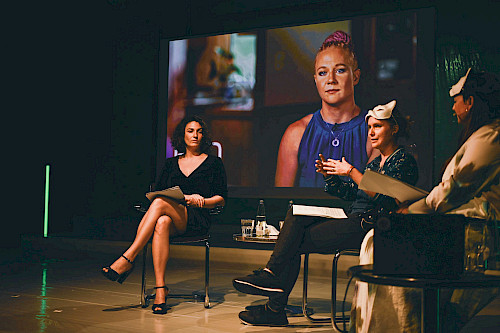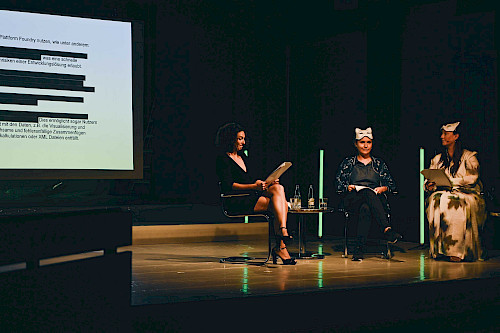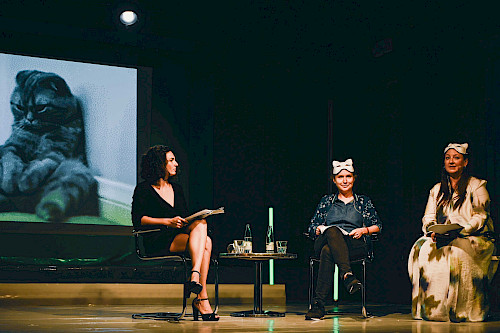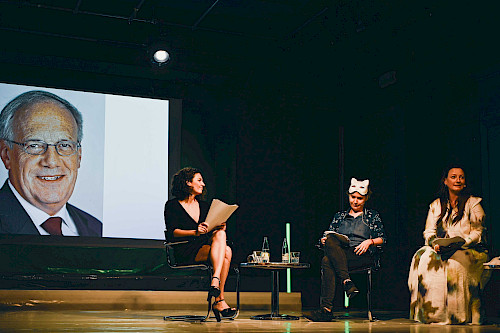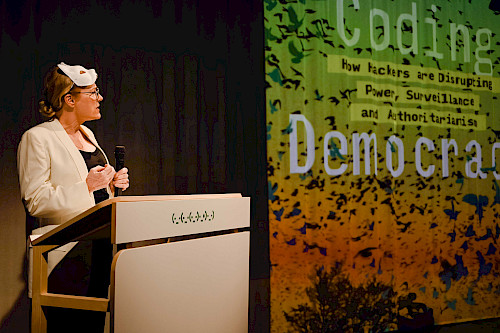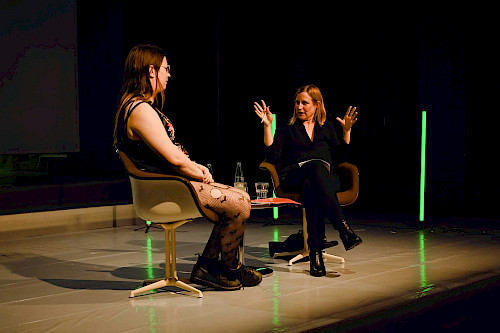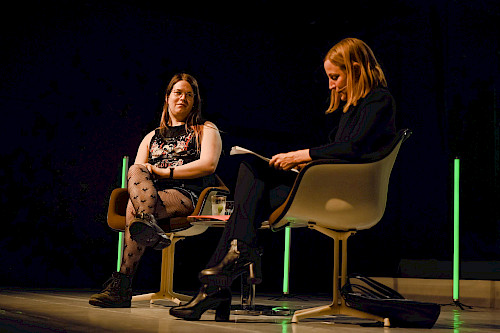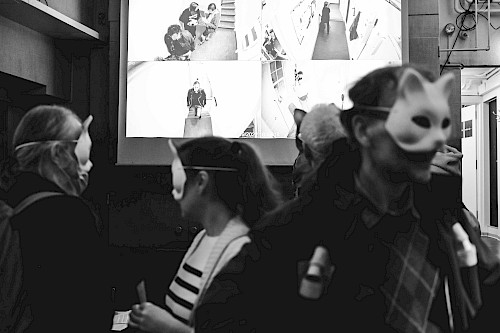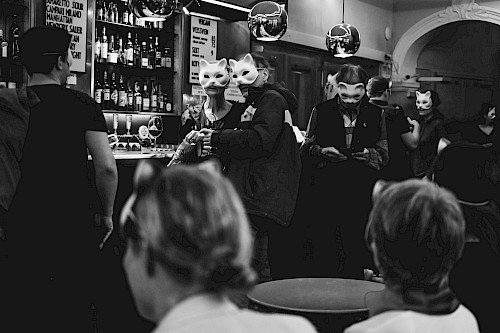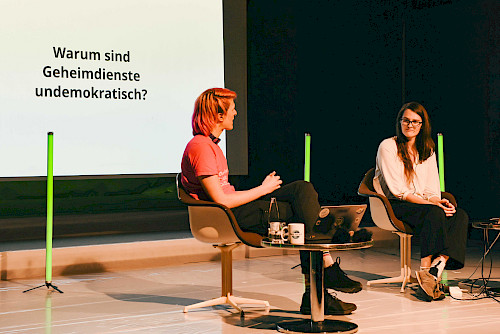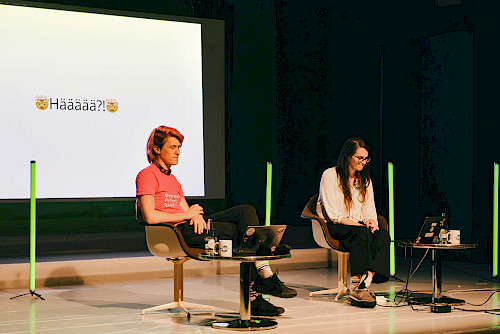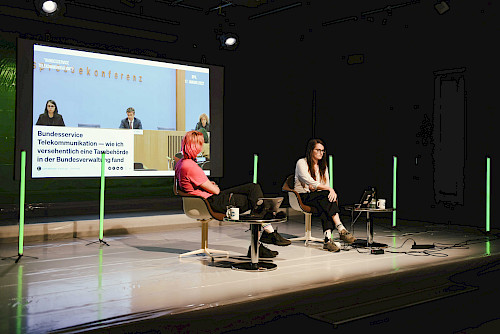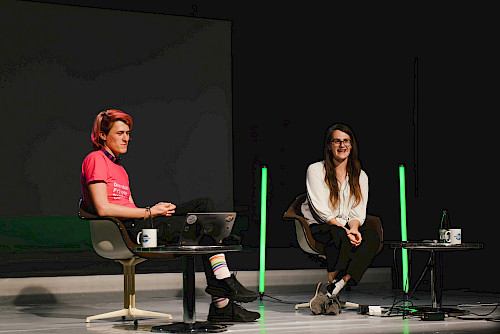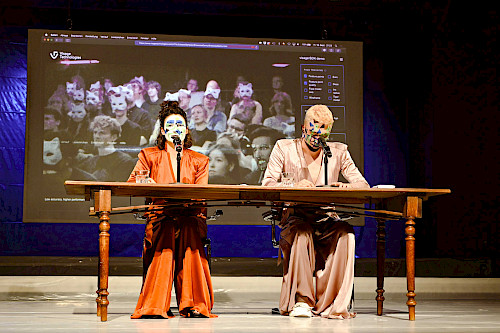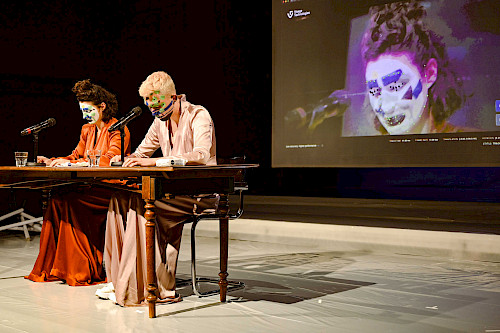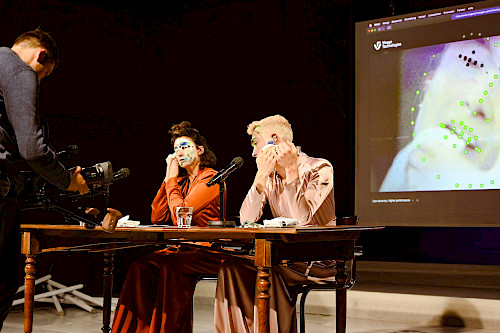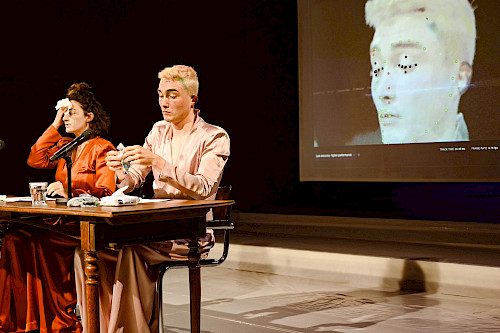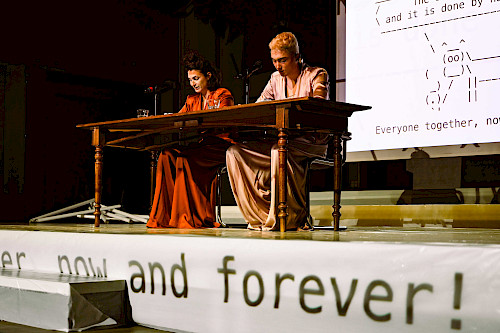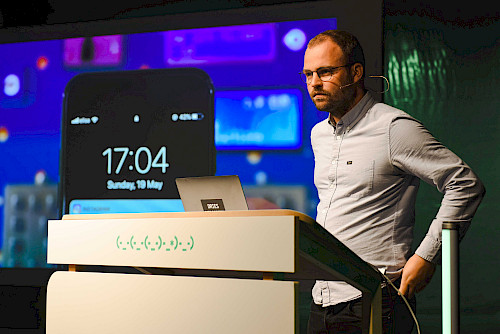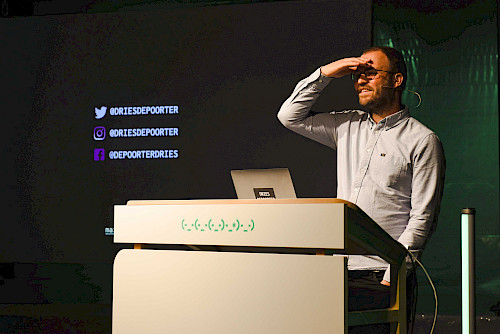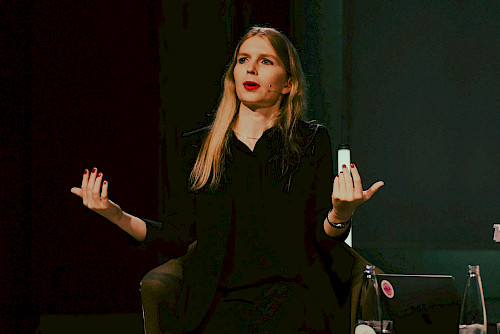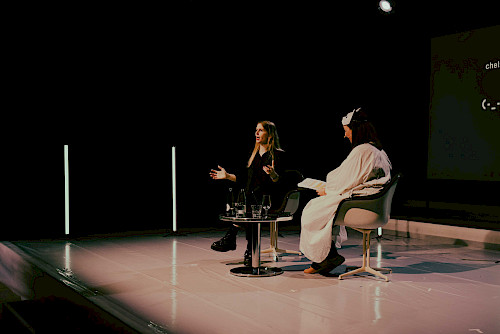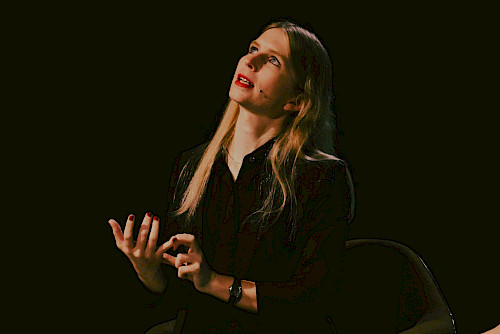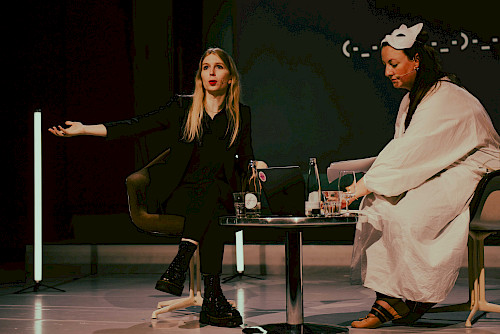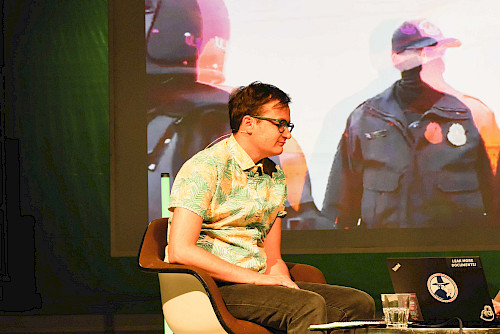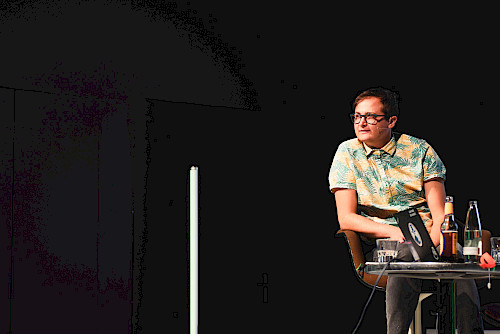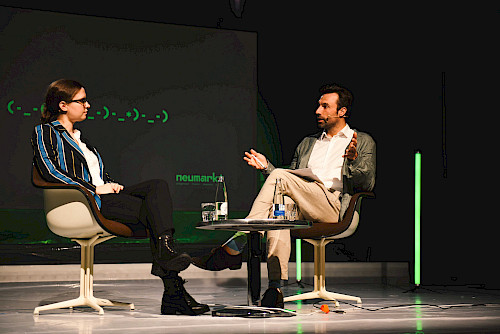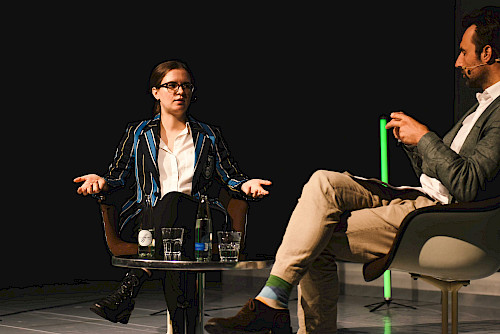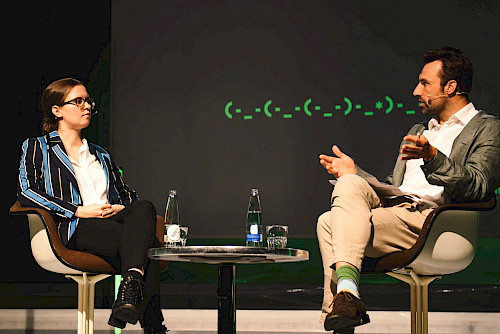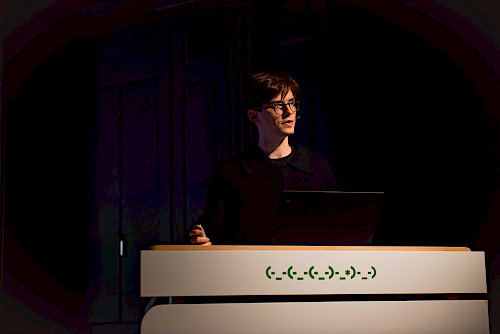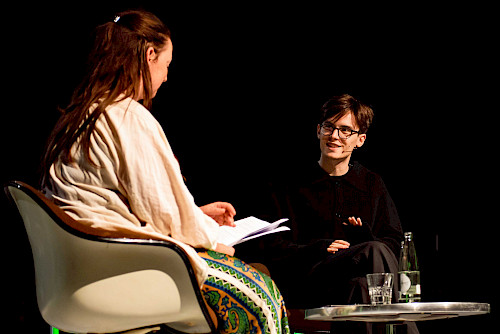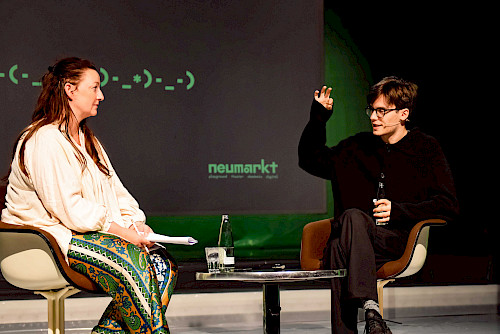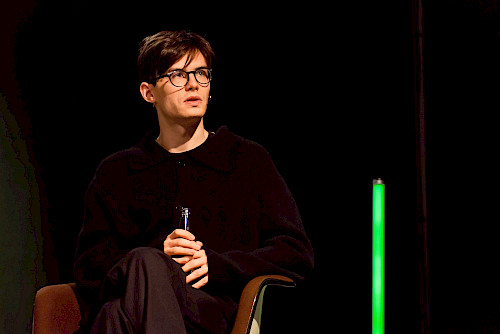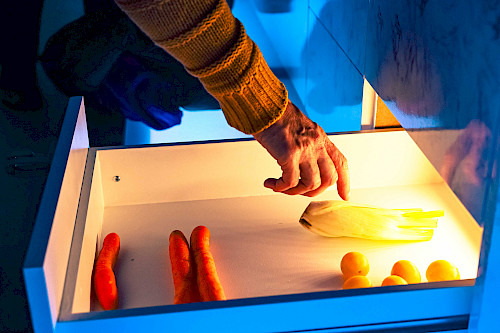The Secret Club of Radical Transparency
(-_-(-_-(-_-)-_*)-_-)
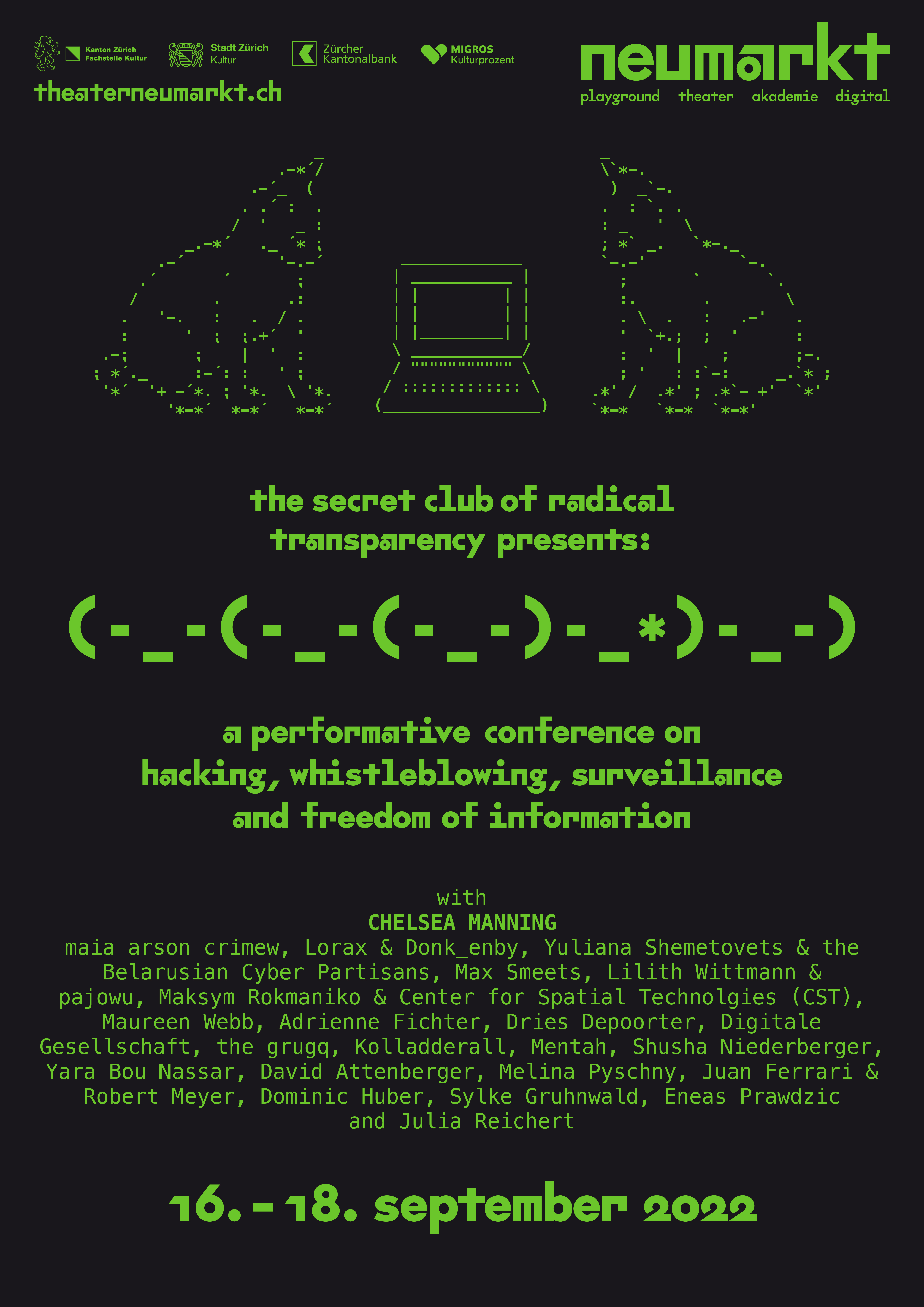
Aftermovie
Chelsea Manning: Presentation & Talk
More Infos
Chelsea E. Manning shares her insights on the paradox presented by rapid advances in technology: On the one hand, we have greater access to information, connection, entertainment, and innovation in the elds of communication, and healthcare than we have ever had before, and this capacity is only growing. On the other hand, technological advances can and have been used to surveil, control, anticipate, and sometimes even kill. This capacity too, is growing. The wild diversity of cultures, languages, lifestyles, and relationships that are so often cited as some of the miraculous outcomes of our connectivity is also shrinking due to these same advances. Here, we think about statistical “nudges” in big data algorithms that create gender, racial, ethnic, gender identity, sexual orientation, religious, political and other biases across large swaths of the online population, intensifying polarization. We think about the heavy focus on precision targeting swing voters in the political realm. In short, no technology is neutral, and internal biases necessarily shape the outcome of technological change. Real people in real places in real time are aected – sometimes on an immense scale. Manning discusses the importance of the human element in development of technology and the imperative to operate with responsibility, accountability, and a strong moral compass, for the sake of not only our privacy, but for the future of humanity, which may very well depend on it.
Chelsea E. Manning is a technologist and network security expert whose actions showed the world that the conscience of individuals can make urgent change through bravery and determination. She speaks on the social, technological, and economic ramifications of Artificial Intelligence, and on the practical applications of machine learning. She is a vocal advocate for government transparency and queer and transgender rights as @xychelsea on Twitter and through her op-ed columns for The Guardian and The New York Times.
Chelsea E. Manning worked as an intelligence analyst for the U.S. Department of Defense where she publicly disclosed classified documents that revealed human rights abuses and corruption connected to the U.S. wars in Iraq and Afghanistan. Upon being sentenced to 35 years for unauthorized disclosure of government documents—an unprecedented amount of time for the charges alleged—she publicly identified as a trans woman and asserted her legal rights to medical therapy. After serving 7 years in military prison, President Barack Obama commuted her sentence to time served. After release in 2017, she ran in the 2018 Maryland state senatorial primary, receiving the second highest number of Democratic votes (just over 6%). In 2019, she was the subject of the documentary XY Chelsea. In March 2019, she refused to testify before a federal grand jury on ethical grounds. She was jailed for a year and forced to pay a civil ne of $256,000. In 2021, Manning worked as a security consultant for Nymtech, a privacy oriented technology project, before transitioning to an employee for Nym as a hardware optimization and security advisor.
Maureen Webb: Coding Democracy
More Infos
Hackers have a bad reputation, as shady deployers of bots and destroyers of infrastructure. In Coding Democracy, Maureen Webb offers another view. According to Webb hacking is becoming a practice, an ethos, and a metaphor for a new wave of activism in which ordinary citizens are inventing new forms of distributed, decentralized democracy for a digital era. Confronted with concentrations of power, mass surveillance, and authoritarianism enabled by new technology, the hacking movement is trying to “build out” democracy into cyberspace.
Maureen Webb is a labour lawyer and human rights activist. She is the author of “Coding Democracy” and “Illusions of Security: Global Surveillance and Democracy in the Post-9/11 World” and has taught national security law as an Adjunct Professor at the University of British Columbia.
Yuliana Shemetovets: Collective Resistance in the Digital Domain
More Infos
In this session, Max Smeets, Senior Researcher at ETH Zurich, goes in conversation with Yuliana Shemetovets, the spokesperson for a Belarusian hacking group calling themselves the Cyber Partisans. The Cyber Partisans has claimed responsibility for several major cyberattacks, including a high-profile operation against the Belarusian railway system that reportedly halted Russian ground artillery and troop movement into Ukraine. This conversation serves to shed light on the group’s motivations, collaborations, legitimacy, and future plans.
Yuliana Shemetovets is a Belarusian activist and spokeswoman on behalf of the Cyber Partisans, a highly organized hacktivist collective that is known for its various cyber attacks against the Belarusian regime and Russian military forces in Belarus. Yuliana is the member of the Suprativ movement, a Belarusian resistance opposition coalition. A director of the “Belarus Liberty” nonprofit organization, Yuliana is focused on using technology to empower civil societies and to advocate for human rights.
Max Smeets is a senior researcher at the Center for Security Studies (CSS). He is also an Affiliate at Stanford University Center for International Security and Cooperation and Research Associate at the Centre for Technology & Global Affairs, University of Oxford. His current book project focuses on the causes underlying cyber proliferation and restraint. He has also published widely on cyber statecraft, strategy and risk.
Maksym Rokmaniko: Spatial Analysis as Testimony in the Russian Invasion of Ukraine
More Infos
The Center for Spatial Technologies is a Kyiv-based cross-disciplinary research practice. They work on a broad range of topics using spatial analysis and visualization techniques. Currently, all their efforts are directed toward analyzing civilian damage caused by the Russian invasion of Ukraine.
On 1 March 2022, Russia launched a missile strike on the Kyiv TV tower. It was not particularly effective militarily. However, the significance of targeting the capital city’s main television and radio tower cannot be underestimated in a war that is as much about control over narrative as over land and the people inhabiting it. (From: Forensic Architecture & The Center for Spatial Technologies (CST): Russian Strike on Kiyiv Tv Tower)
In examining cases such as the Kyiv TV tower or Mariupol Theater they uncover past & present of these fraught landscapes, collecting evidence & witness testimonies, excavating historical layers and connecting it back to architectural models. Working with the key locations in this way, they document their destruction and the urban life these places used to sustain before the attacks. Diving deeper into their histories, they are excavating stories of destruction, repression, and genocide that these places witnessed in the past, which, in turn, can help us understand the events of today - thus hacking back in a war that is as much about control over narrative as over land and the people inhabiting it.
Maksym Rokmaniko (b.1991, Khmelnytsky, UA) is an architect, researcher, and educator. Maksym is the founding director of the Center for Spatial Technologies (CST), the multidisciplinary practice based in Kyiv.
CST works on a broad range of topics using spatial analysis and visualisation techniques. Currently, their existing projects are on hold as all their efforts are directed toward analysing civilian damage caused by the Russian invasion of Ukraine. For each case, CST assembles photographs, videos, witness testimonies, and media reports, uniting them within a 3D architectural model. Working with the key locations of the war in this way, CST is documenting their destruction as well as their cultural life prior, excavating the deeper histories of these historical sites to understand the unfolding events of today. To undertake this research, CST has collaborated with the world’s leading historians and several international organizations and professionals. CST research on Babyn Yar has been recognized by Forensic Architecture, a multidisciplinary research group based at Goldsmiths, University of London and Berlin.
Maksyms research iscommitted to working within the Ukrainian context while establishing important connections and dialogue with major international cultural and educational institutions to bring a cutting-edge, multifaceted, and well-informed critical perspective.
https://www.spatialtech.info
Adrienne Fichter & Sylke Gruhnwald: Not Shutting Up
More Infos
TALK IN GERMAN:
In Miniaturen aus ihren Recherchen, mal witzig, mal traurig, poetisch oder brutal, nähern sich die Investigativjournalistinnen Adrienne Fichter und Sylke Gruhnwald Aktivistinnen, Oppositionellen, Dissidenten, Whistleblowerinnen, Hackerinnen, Menschen, die Macht aus der Position der Aussenseiterin erleben und sich mutig dagegen erheben.
Neumarkt Ensemble & Phineas Fisher: How to Hack a Bank
More Infos
How to Hack a Bank – Based on Phineas Fisher’s DIY Series Hack Back!
A Performance by Melina Pyschny & David Attenberger
What if you could rob a bank from the comfort of your couch? Would you do it? The 2019 published DIY guide by myth-busting Phineas Fisher makes it possible. In it, Phineas Fisher - a 21st century Robin Hood of sorts - takes you step-by-step through how to hack a bank and what to look out for along the way. Punctuated with poetry and anecdotes about their own bank robbery, the hacker (or is it a collective?) calls for a fight against the rich and powerful. Will you help?

